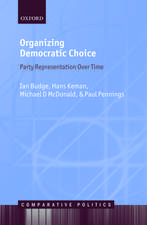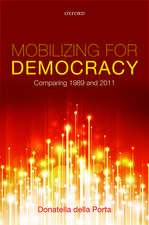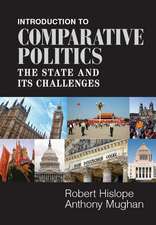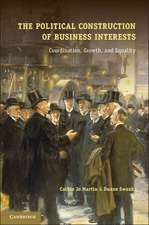Self-Organizing Federalism: Collaborative Mechanisms to Mitigate Institutional Collective Action Dilemmas
Editat de Richard C. Feiock, John T. Scholzen Limba Engleză Hardback – 25 oct 2009
Preț: 794.45 lei
Preț vechi: 923.78 lei
-14% Nou
Puncte Express: 1192
Preț estimativ în valută:
152.02€ • 165.79$ • 128.18£
152.02€ • 165.79$ • 128.18£
Carte tipărită la comandă
Livrare economică 24 aprilie-08 mai
Preluare comenzi: 021 569.72.76
Specificații
ISBN-13: 9780521764933
ISBN-10: 0521764939
Pagini: 368
Ilustrații: 19 b/w illus. 24 tables
Dimensiuni: 162 x 240 x 29 mm
Greutate: 0.66 kg
Editura: Cambridge University Press
Colecția Cambridge University Press
Locul publicării:New York, United States
ISBN-10: 0521764939
Pagini: 368
Ilustrații: 19 b/w illus. 24 tables
Dimensiuni: 162 x 240 x 29 mm
Greutate: 0.66 kg
Editura: Cambridge University Press
Colecția Cambridge University Press
Locul publicării:New York, United States
Cuprins
Part I. Self-Organizing Versus Centralized Solutions to Institutional Collective Action Problems: Theoretical Considerations: 1. Self-organizing governance of institutional collective action dilemmas: an overview Richard C. Feiock and John T. Scholz; 2. Can consolidation preserve local autonomy? Mitigating vertical and horizontal dilemmas Andrew B. Whitford; 3. The institutional collective action perspective on self-organizing mechanism: market failures and transaction cost problems Annette Steinacker; 4. Conflict, power, and irreconcilable preferences: some limits to self organizing mechanism Bryan Jones; Part II. Integrating Metropolitan Service Provision: Networks, Contracts, Agreements, and Special Districts: 5. Adaptive versus restrictive contracts: can they resolve different risk problems? Simon Andrew; 6. Do risk profiles of services alter contractual patterns? A comparison across multiple metropolitan services Manoj Shrestha; 7. Special districts versus contracts: complements or substitutes? Megan Mullin; 8. The political market for intergovernmental cooperation Kenneth N. Bickers, Stephanie Post and Robert M. Stein; Part III. Integrating Regional Policies through Networks, Joint Ventures, and Partnerships: 9. Collaborative institutions, functional areas, and beliefs: what are their roles in policy networks? Christopher M. Weible; 10. Sustaining joint ventures: the role of resource exchange and the strength of inter-organizational relationship Ramiro Berardo; 11. Institutional collective action in an ecology of games Mark Lubell, Adam Henry and Mike McCoy; 12. Enhancing vertical and horizontal self-organization: harnessing informal networks to integrate policies within and between governments in the European Union Paul Thurner; Part IV. Self-Organizing Governance and Institutional Collective Action: 13. Self-organizing mechanisms for mitigating institutional collective action dilemmas: an assessment and research agenda Richard C. Feiock and John T. Scholz.
Recenzii
'Feiock and Scholz are on their way to doing for intergovernmental relations what Elinor Ostrom has done for common pool resource management: helping us understand how externalities can be overcome through bottom-up, local solutions. These remedies often surpass centrally provided solutions because they are designed to fit local needs, traditions, and capacities. The contributed chapters fill out the theory well and offer excellent examples of the variety of homegrown solutions. Those who set policy as well as those who study it will find much of interest in this unique volume.' Jenna Bednar, University of Michigan
'Today's policy problems cannot be solved by analysts recommending one solution for all problems based on narrow disciplinary viewpoints. Most policy problems are multi-level where solutions that work at one level, or for one problem, do not work at other levels or for other problems. This book analyzes multiple solutions without getting lost in chaos. An essential read!' Elinor Ostrom, Indiana University
'How can we encourage collaborative action in formally decentralized governance settings? Which of many possible institutional arrangements among local governments and agencies offers the best match for a particular policy challenge? How can we make sense of the myriad collaborative possibilities - networks, contracts, partnerships, and the like? Self-Organizing Federalism makes a significant contribution by offering needed and welcome answers.' Laurence J. O'Toole, Jr, University of Georgia
'The authors have produced an intelligent, accessible, and academic agenda-setting volume worthy of wide readership.' Mark Rhinard, Public Administration
'Today's policy problems cannot be solved by analysts recommending one solution for all problems based on narrow disciplinary viewpoints. Most policy problems are multi-level where solutions that work at one level, or for one problem, do not work at other levels or for other problems. This book analyzes multiple solutions without getting lost in chaos. An essential read!' Elinor Ostrom, Indiana University
'How can we encourage collaborative action in formally decentralized governance settings? Which of many possible institutional arrangements among local governments and agencies offers the best match for a particular policy challenge? How can we make sense of the myriad collaborative possibilities - networks, contracts, partnerships, and the like? Self-Organizing Federalism makes a significant contribution by offering needed and welcome answers.' Laurence J. O'Toole, Jr, University of Georgia
'The authors have produced an intelligent, accessible, and academic agenda-setting volume worthy of wide readership.' Mark Rhinard, Public Administration
Descriere
This book investigates self-organizing institutions that resolve institutional collective action dilemmas in federalism, urban governance, and regional management of natural resources.














